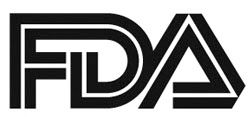FDA Grants Priority Review to Belantamab Mafodotin for Relapsed/Refractory Multiple Myeloma
The FDA granted Priority Review to the Biologics License Application for belantamab mafodotin, an anti–B cell maturation antigen monoclonal antibody for the treatment of patients with relapsed or refractory multiple myeloma whose prior therapies included an immunomodulatory agent, a proteasome inhibitor, and an anti-CD38 antibody, GlaxoSmithKline plc announced in a press release.<br />

The FDA granted Priority Review to the Biologics License Application for belantamab mafodotin, an antiB cell maturation antigen (BCMA) monoclonal antibody for the treatment of patients with relapsed or refractory multiple myeloma whose prior therapies included an immunomodulatory agent, a proteasome inhibitor, and an anti-CD38 antibody, GlaxoSmithKline plc announced in a press release.1
Date from theopen-label, randomized, 2-arm phase II pivotal study (DREAMM-2), which were recently published inLancet Oncology,were the basis for the Priority Review for belantamab mafodotin.2
In the overall population of patients in the study (n = 196), the overall response rate (ORR) in each group was more than 30%. Among patients who received 2.5 mg/kg of belantamab mafodotin (n = 97), 31% achieved a response, as well as 34% of those who received the 3.4 mg/kg dose of the drug (n = 99). Nineteen percent of patients in the 2.5 mg/kg group and 20% of those in the 3.4 mg/kg group achieved a very good partial response or better.
At follow-up, the median duration of response lasted for 6.3 months in the 2.5-mg/kg group and 6.9 months in the 3.4-mg/kg group. The median duration of response has not yet been reached. The investigators estimated that the probability that patients who received the 2.5-mg/kg dose and 3.4-mg/kg dose of belantamab mafodotin could have a duration of response that lasts 4 months or more was 78% and 87%, respectively.
The median progression-free survival among patients who were given 2.5 mg/kg of belantamab mafodotin was 2.9 months (95% CI, 2.1-3.7) compared with 4.9 months (95% CI, 2.3-6.2) in the 3.4mg/kg group.
All patients in the DREAMM-2 study experienced at least 1 adverse event (AE), with the exception of 2 patients in the 2.5-mg/kg group. Additionally, 54% of patients who received 2.5mg/kg of belantamab mafodotin experienced AEs leading to dose delay compared with 62% of patients in the 3.4mg/kg group. Dose reduction occurred in 29% and 41% of patients, respectively. Treatment was permanently discontinued in 8% of patients in the 2.5-mg/kg group and 10% of those in the 3.4-mg/kg group. Two patients died during the study and investigators concluded that these deaths may have been related study treatment.
Infusion-related reaction occurred in 18% of the patients who were given belantamab mafodotin at 2.5 mg/kg and 15% of those who received 3.4 mg/kg. These reactions were predominantly grade ½ in severity. There was 1 patient in the 2.5-mg/kg group who had a grade 3 infusion-related reaction, which led to discontinuation of treatment.
Belantamab mafodotin was previously granted Breakthrough Therapy Designation by the FDAfor the treatment of patients with relapsed/refractory multiple myeloma. Th agents are currently under investigation in multiple studies. If approved by the FDA, belantamab mafodotin will be the first anti-BCMA treatment available to patients.
References
- US Food and Drug Administration (FDA) grants priority review of belantamab mafodotin for patients with relapsed or refractory multiple myeloma [news release]. London, England: GlaxoSmithKline plc; January 21, 2020. https://prn.to/3avqSkZ. Accessed January 21, 2020.
- Lonial S, Lee HC, Badros A, et al. Belantamab mafodotin for relapsed or refractory multiple myeloma (DREAMM-2): a two-arm, randomize, open-label, phase 2 study. [published online December 16, 2019].Lancet Oncol. doi: 10.1016/S1470-2045(19)30788-0.
Gasparetto Explains Rationale for Quadruplet Front Line in Transplant-Ineligible Myeloma
February 22nd 2025In a Community Case Forum in partnership with the North Carolina Oncology Association, Cristina Gasparetto, MD, discussed the CEPHEUS, IMROZ, and BENEFIT trials of treatment for transplant-ineligible newly diagnosed multiple myeloma.
Read More